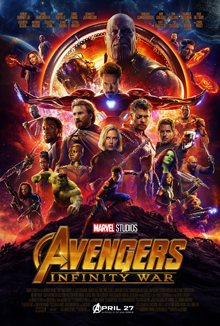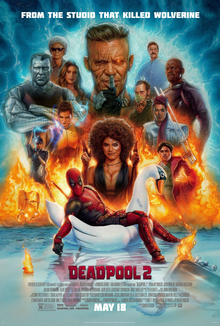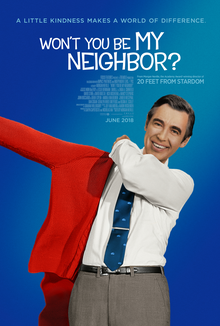Listen, I've made my love for Marvel movies quite clear on this blog. But it's also becoming increasingly clear that there are a LOT of Marvel movies to get through every year. It's only July and we've already had four movies out this year, with two more due before January. As such, I am growing wary of posting reviews of each individual film, unless of course, like Black Panther, they utterly blow my mind. So I give you my condensed reviews of the other three Marvel movies I've watched in 2018.
 Avengers Infinity War: Do I remember anything about this movie? Um maybe? It was fine, OK? It has a lot of superheroes, including Spider-Man and Black Panther getting in on the action (with a whole set piece in Wakanda in case you were still suffering from Black Panther withdrawal) and Dr. Strange opening up portals all over the place, and it was all visually stunning. The Guardians of the Galaxy finally got to hang out with the rest of the cast of the Marvel Cinematic Universe, which meant the jokes were great and the action sequences were even more out of this world than usual. The movie was also an ode to what an incredible achievement the MCU has accomplished over the past decade. It was particularly gratifying to see scenes where a bunch of women got together to kick ass, showcasing how the MCU has managed to up the estrogen levels in their movies a bit (though much work remains to be done of course). They started with Iron-Man, and now they have this entire coterie of movies and characters to draw upon. That being said, the most intriguing part of this movie was the very end, which reminded me a great deal of The Leftovers (oops, spoiler alert to those niche readers who are fans of both franchises). It definitely made me excited to see Part 2, so Marvel's still got it!
Avengers Infinity War: Do I remember anything about this movie? Um maybe? It was fine, OK? It has a lot of superheroes, including Spider-Man and Black Panther getting in on the action (with a whole set piece in Wakanda in case you were still suffering from Black Panther withdrawal) and Dr. Strange opening up portals all over the place, and it was all visually stunning. The Guardians of the Galaxy finally got to hang out with the rest of the cast of the Marvel Cinematic Universe, which meant the jokes were great and the action sequences were even more out of this world than usual. The movie was also an ode to what an incredible achievement the MCU has accomplished over the past decade. It was particularly gratifying to see scenes where a bunch of women got together to kick ass, showcasing how the MCU has managed to up the estrogen levels in their movies a bit (though much work remains to be done of course). They started with Iron-Man, and now they have this entire coterie of movies and characters to draw upon. That being said, the most intriguing part of this movie was the very end, which reminded me a great deal of The Leftovers (oops, spoiler alert to those niche readers who are fans of both franchises). It definitely made me excited to see Part 2, so Marvel's still got it!
Deadpool 2: Meh. Turns out Deadpool is a bit of a one-trick pony for me. The first movie was a crazy ride and the first R-rated superhero film, and it was magnificent. But Deadpool 2 is more of the same without much more plot, and turns out I don't much care for that. In fact, it reminded me a lot of Guardians of the Galaxy 2, where I discovered that while I absolutely LOVED the first installment, the second was just a repetition that wasn't as entertaining once the novelty wore off. If you like foul-mouthed superheroes getting up to all sorts of shenanigans, this is the franchise for you, but if you like something with a bit more meaning and emotion, move right along. The fact that this movie stars Zazie Beetz of Atlanta fame is of course a huge plus, but oh boy, there's only so much breaking of the fourth wall and general schoolboy snark that a girl can take.
 Ant-Man and the Wasp: As the movie I've seen most recently, I can say I was pleasantly surprised and refreshed. It was a light and amusing summer movie, the perfect mid-week treat, and wasn't heavy-handed or portentous in any way. Paul Rudd was his charming, effervescent self, Evangeline Lilly got to be a bad ass, and more than anything, the visual effects of this franchise continue to delight me. The chance to play around with size allows for such dazzling creativity, and while much of it was already spoiled in the trailer, I still found myself gleefully cheering along to every action sequence, delighting in how Ant-Man and the Wasp kept getting tiny, then enormous, and weaponizing everyday objects to great effect to thwart the bad guys. If you want an entertaining movie that doesn't make you think too much, this is the perfect escape. And if you stay for the post-credits sequence (the first one, don't bother to stay till the very end for the pointless second one), there's a marvelous call back to Avengers Infinity War that makes the whole MCU come together.
Ant-Man and the Wasp: As the movie I've seen most recently, I can say I was pleasantly surprised and refreshed. It was a light and amusing summer movie, the perfect mid-week treat, and wasn't heavy-handed or portentous in any way. Paul Rudd was his charming, effervescent self, Evangeline Lilly got to be a bad ass, and more than anything, the visual effects of this franchise continue to delight me. The chance to play around with size allows for such dazzling creativity, and while much of it was already spoiled in the trailer, I still found myself gleefully cheering along to every action sequence, delighting in how Ant-Man and the Wasp kept getting tiny, then enormous, and weaponizing everyday objects to great effect to thwart the bad guys. If you want an entertaining movie that doesn't make you think too much, this is the perfect escape. And if you stay for the post-credits sequence (the first one, don't bother to stay till the very end for the pointless second one), there's a marvelous call back to Avengers Infinity War that makes the whole MCU come together.
Ultimately, the Marvel machine is adept at tying these movies together and making you want to watch every single installment so you can pick up on all the little Easter eggs from other movies. Not every movie they make is a rollicking success, but they always provide entertainment, no matter how forgettable. You may disagree with my recap of the three sequels above, but I think the one thing we can all agree on is that these movies aren't going anywhere, and no matter how ambivalent I may get about some of them, as long as they toss in a few Black Panthers once in a while, I'll be along for the ride.
 Avengers Infinity War: Do I remember anything about this movie? Um maybe? It was fine, OK? It has a lot of superheroes, including Spider-Man and Black Panther getting in on the action (with a whole set piece in Wakanda in case you were still suffering from Black Panther withdrawal) and Dr. Strange opening up portals all over the place, and it was all visually stunning. The Guardians of the Galaxy finally got to hang out with the rest of the cast of the Marvel Cinematic Universe, which meant the jokes were great and the action sequences were even more out of this world than usual. The movie was also an ode to what an incredible achievement the MCU has accomplished over the past decade. It was particularly gratifying to see scenes where a bunch of women got together to kick ass, showcasing how the MCU has managed to up the estrogen levels in their movies a bit (though much work remains to be done of course). They started with Iron-Man, and now they have this entire coterie of movies and characters to draw upon. That being said, the most intriguing part of this movie was the very end, which reminded me a great deal of The Leftovers (oops, spoiler alert to those niche readers who are fans of both franchises). It definitely made me excited to see Part 2, so Marvel's still got it!
Avengers Infinity War: Do I remember anything about this movie? Um maybe? It was fine, OK? It has a lot of superheroes, including Spider-Man and Black Panther getting in on the action (with a whole set piece in Wakanda in case you were still suffering from Black Panther withdrawal) and Dr. Strange opening up portals all over the place, and it was all visually stunning. The Guardians of the Galaxy finally got to hang out with the rest of the cast of the Marvel Cinematic Universe, which meant the jokes were great and the action sequences were even more out of this world than usual. The movie was also an ode to what an incredible achievement the MCU has accomplished over the past decade. It was particularly gratifying to see scenes where a bunch of women got together to kick ass, showcasing how the MCU has managed to up the estrogen levels in their movies a bit (though much work remains to be done of course). They started with Iron-Man, and now they have this entire coterie of movies and characters to draw upon. That being said, the most intriguing part of this movie was the very end, which reminded me a great deal of The Leftovers (oops, spoiler alert to those niche readers who are fans of both franchises). It definitely made me excited to see Part 2, so Marvel's still got it!Deadpool 2: Meh. Turns out Deadpool is a bit of a one-trick pony for me. The first movie was a crazy ride and the first R-rated superhero film, and it was magnificent. But Deadpool 2 is more of the same without much more plot, and turns out I don't much care for that. In fact, it reminded me a lot of Guardians of the Galaxy 2, where I discovered that while I absolutely LOVED the first installment, the second was just a repetition that wasn't as entertaining once the novelty wore off. If you like foul-mouthed superheroes getting up to all sorts of shenanigans, this is the franchise for you, but if you like something with a bit more meaning and emotion, move right along. The fact that this movie stars Zazie Beetz of Atlanta fame is of course a huge plus, but oh boy, there's only so much breaking of the fourth wall and general schoolboy snark that a girl can take.
 Ant-Man and the Wasp: As the movie I've seen most recently, I can say I was pleasantly surprised and refreshed. It was a light and amusing summer movie, the perfect mid-week treat, and wasn't heavy-handed or portentous in any way. Paul Rudd was his charming, effervescent self, Evangeline Lilly got to be a bad ass, and more than anything, the visual effects of this franchise continue to delight me. The chance to play around with size allows for such dazzling creativity, and while much of it was already spoiled in the trailer, I still found myself gleefully cheering along to every action sequence, delighting in how Ant-Man and the Wasp kept getting tiny, then enormous, and weaponizing everyday objects to great effect to thwart the bad guys. If you want an entertaining movie that doesn't make you think too much, this is the perfect escape. And if you stay for the post-credits sequence (the first one, don't bother to stay till the very end for the pointless second one), there's a marvelous call back to Avengers Infinity War that makes the whole MCU come together.
Ant-Man and the Wasp: As the movie I've seen most recently, I can say I was pleasantly surprised and refreshed. It was a light and amusing summer movie, the perfect mid-week treat, and wasn't heavy-handed or portentous in any way. Paul Rudd was his charming, effervescent self, Evangeline Lilly got to be a bad ass, and more than anything, the visual effects of this franchise continue to delight me. The chance to play around with size allows for such dazzling creativity, and while much of it was already spoiled in the trailer, I still found myself gleefully cheering along to every action sequence, delighting in how Ant-Man and the Wasp kept getting tiny, then enormous, and weaponizing everyday objects to great effect to thwart the bad guys. If you want an entertaining movie that doesn't make you think too much, this is the perfect escape. And if you stay for the post-credits sequence (the first one, don't bother to stay till the very end for the pointless second one), there's a marvelous call back to Avengers Infinity War that makes the whole MCU come together.Ultimately, the Marvel machine is adept at tying these movies together and making you want to watch every single installment so you can pick up on all the little Easter eggs from other movies. Not every movie they make is a rollicking success, but they always provide entertainment, no matter how forgettable. You may disagree with my recap of the three sequels above, but I think the one thing we can all agree on is that these movies aren't going anywhere, and no matter how ambivalent I may get about some of them, as long as they toss in a few Black Panthers once in a while, I'll be along for the ride.




